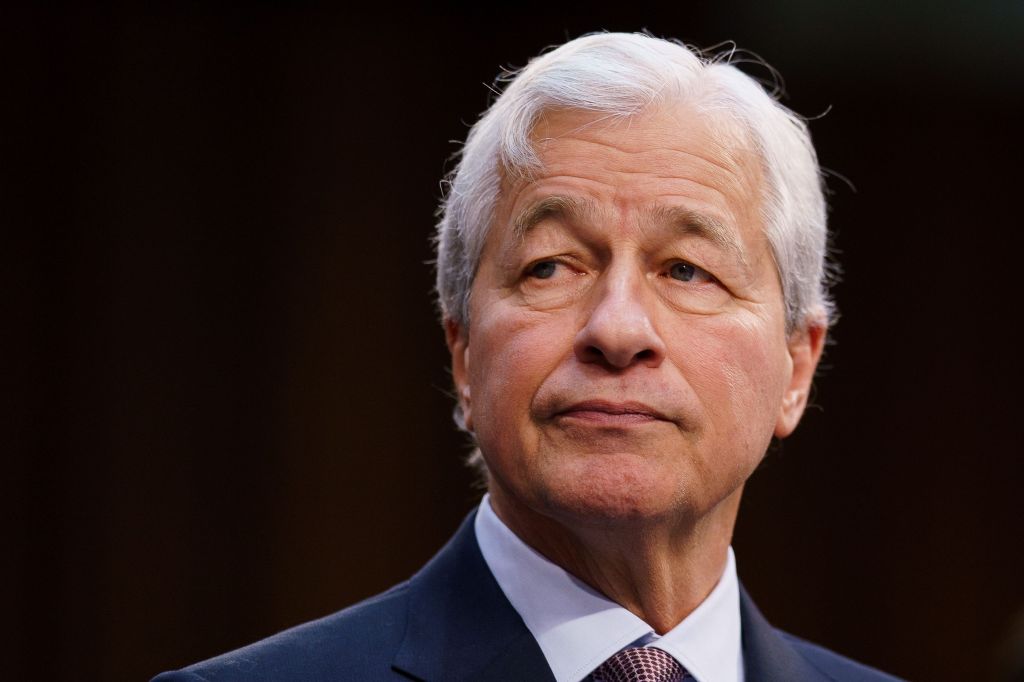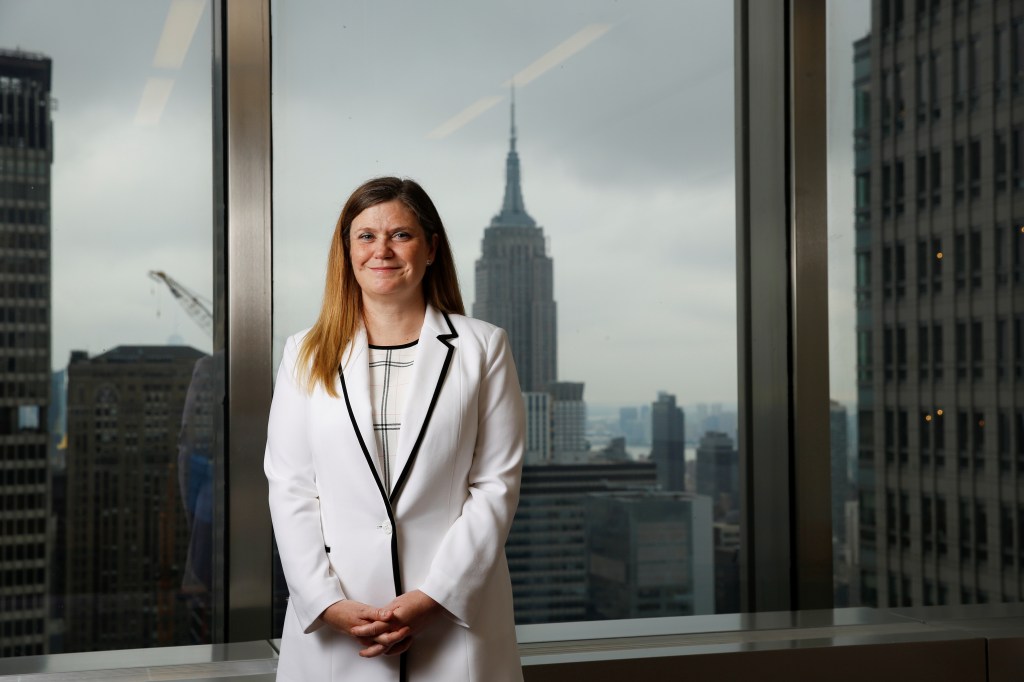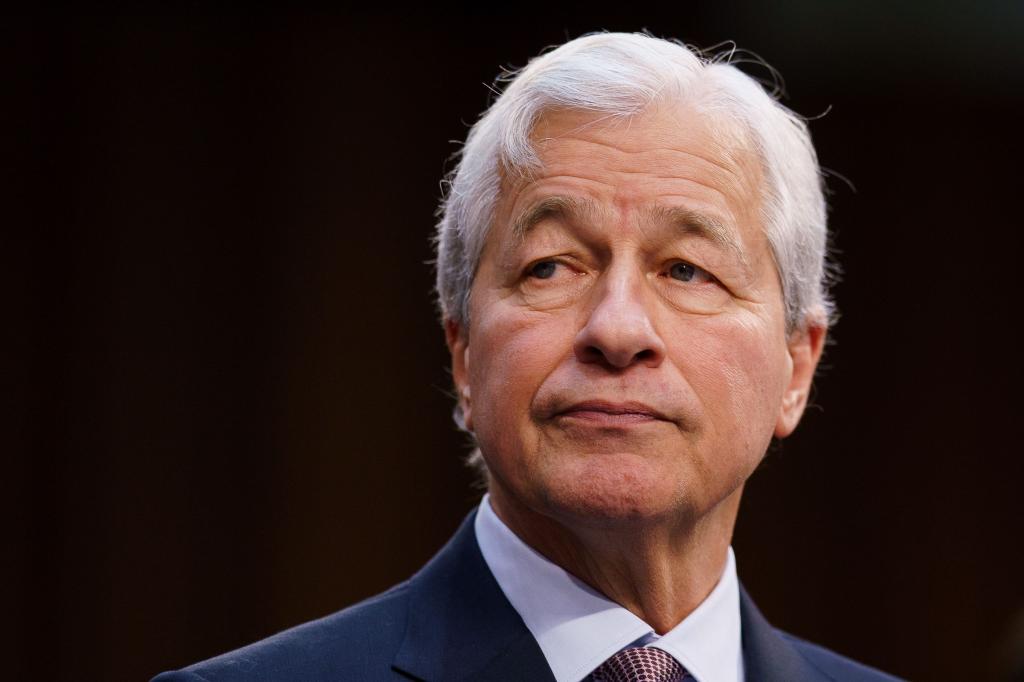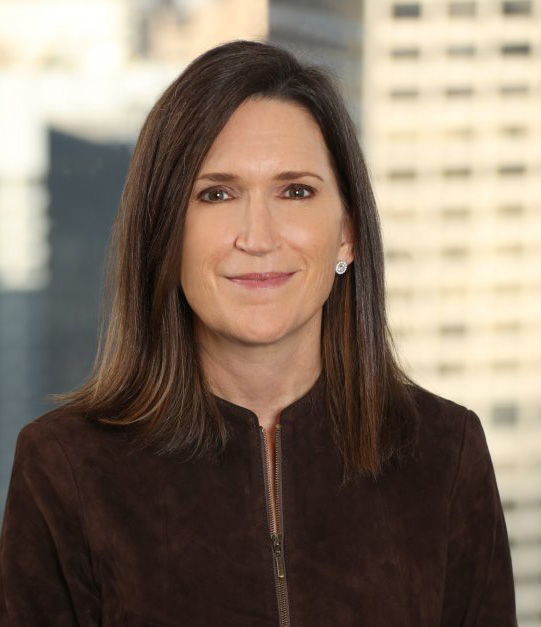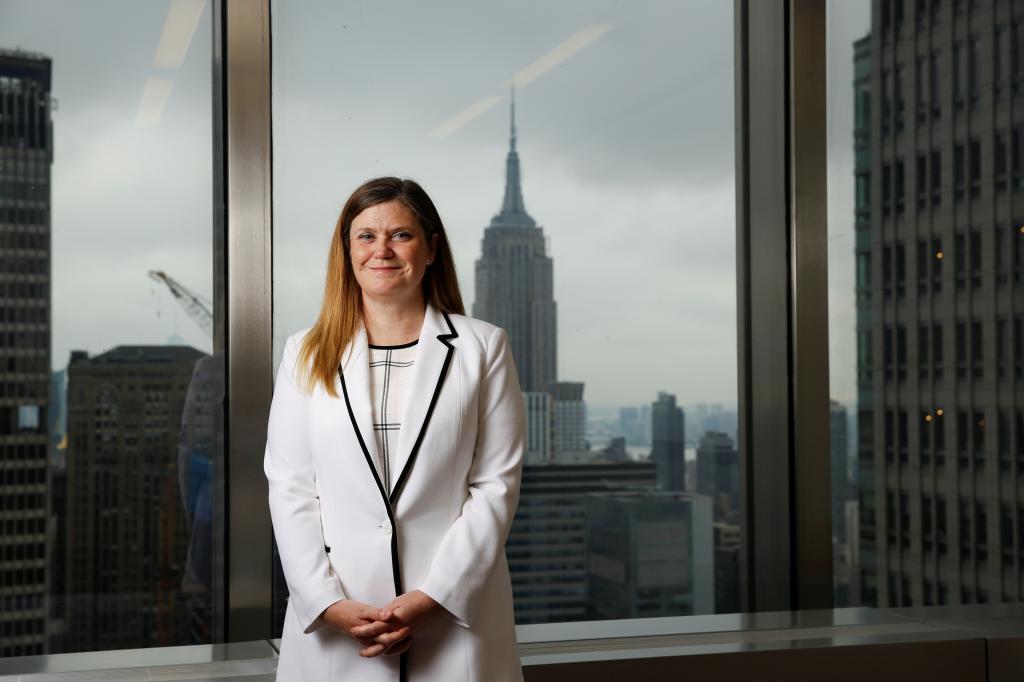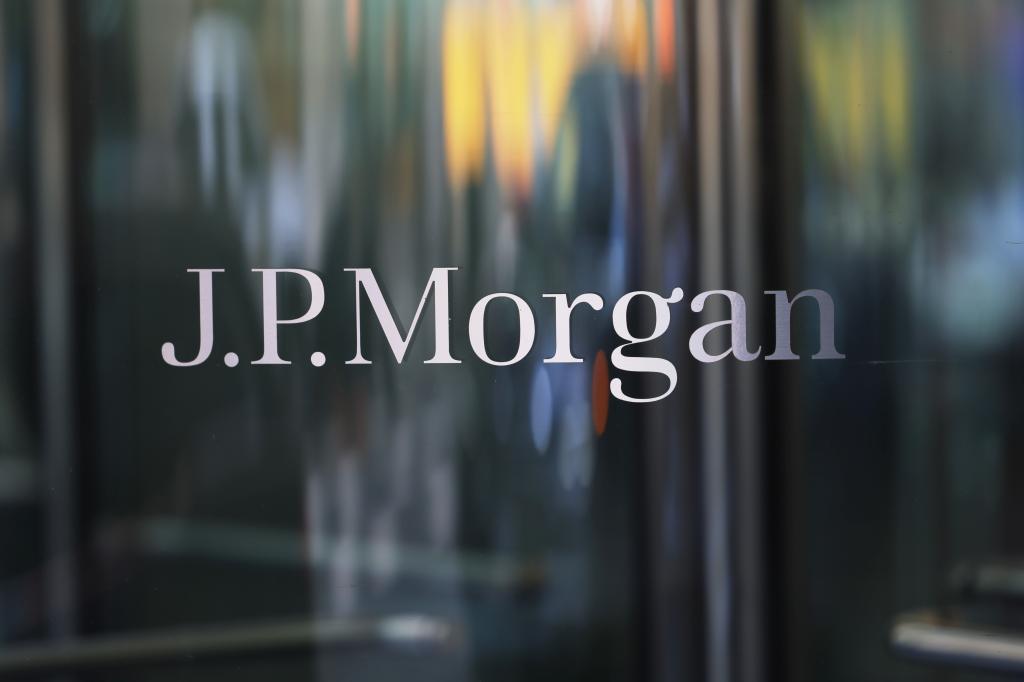Jennifer Piepszak emerges as leading contender to succeed JPMorgan CEO Jamie Dimon: report
Contact The Author
Jennifer Piepszak, the chief financial officer of JPMorgan Chase, has reportedly emerged as the leading candidate to succeed CEO Jamie Dimon — although her 67-year-old boss shows no signs of slowing down at the helm of the nation’s largest lender.
Piepszak, who in the past has expressed reservations about inheriting the mantle from Dimon, is now willing to be considered if and when Dimon steps aside, according to Bloomberg News.
Colleagues in the know told Bloomberg News that Piepszak, 53, has managed to snag several promotions while forging relationships with other senior executives at the bank — positioning her as the No. 1 candidate.
Her close friend and mentor, Marianne Lake, has also been pegged as a possible successor to Dimon, though she has fielded overtures from other companies about potentially taking on an executive position and leaving JPMorgan Chase.
JPMorgan Chase declined to comment.
The 54-year-old Lake holds the title as co-CEO for consumer and community banking. Her chops as an executive has attracted interest from the likes of Wells Fargo and PayPal — both of whom offered her the CEO role, according to Bloomberg News.
Lake joined JPMorgan Chase more than two decade ago — rising through the corporate ladder after starting out in the corporate and investment banking divisions. She then hired Piepszak for a position in the mortgage unit.
In 2019, Dimon appointed Lake as the head of consumer lending while Piepszak was named chief financial officer. In 2021, Lake and Piepszak assumed joint leadership of the consumer and community banking division after its co-president, Gordon Smith, announced his retirement.
To some insiders, the latter arrangement looked hopelessly awkward given that Lake and Piepszak were close friends and apparently being pitted against each other in a succession race.
“If you put two people in the position where only one can survive, it’s difficult for them to work harmoniously,” Dick Bove, Wall Street Analyst at Odeon Capital Group, told The Post at the time.
JPMorgan dismissed such concerns at the time, calling them “sexist and ridiculous.”
Speculation about Dimon’s future ramped up in 2020 when he underwent heart surgery. He was replaced on an interim basis by the bank’s president, 60-year-old Daniel Pinto.
In 2021, JPMorgan gave Dimon a “special award” that incentivized his staying on for another five years as CEO.
Dimon must remain as CEO of the bank until at least 2026 so that he could claim $50 million worth of stock options.
The deal includes another catch — Dimon cannot sell the shares until 2031.
Dimon has helmed the bank for the past 18 years. Under his stewardship, the bank weathered the 2008 financial crisis — going on to become a lending behemoth with more than $3 trillion in assets under its management.
In May, Dimon joked that he leads the bank with the same intensity as when he was younger, but noted with a laugh that he plans to remain another “3-1/2” years.
Dimon stressed the bank’s plans regarding his tenure were unchanged, although did not give specifics.
“I’m not going to change, I’m not going to play golf, I love my country, my company, my family,” said Dimon.
“I can’t do this forever, I know that, but my intensity is the same. When I don’t have this kind of intensity, I should leave.”
When asked at various points during his 17-year tenure about succession plans, Dimon previously given five years as a timeline for stepping down.
“One of the most important governance things is that once a year the board meets without the CEO,” Dimon said.
“If you want to give a board discretion and ability to talk to each other, it’s not to have me in the room.”
